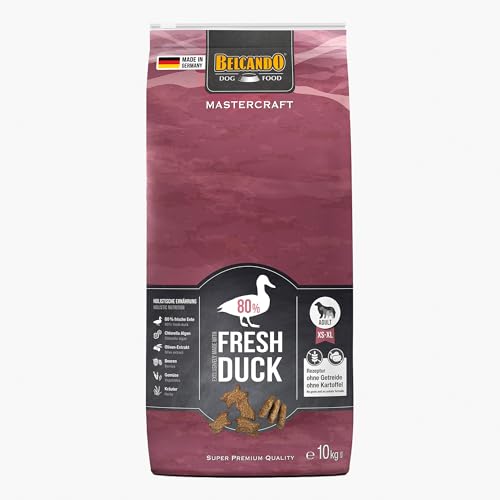Understanding Vegan Dog Food: What It Is and Why We Choose It
What Is Vegan Dog Food?
Vegan dog food is specifically formulated to meet the nutritional needs of dogs without using any animal products. This type of diet typically contains plant-based ingredients like legumes, grains, vegetables, and fruits, providing all the essential nutrients needed for a healthy canine diet. We choose vegan dog food for various reasons, including ethical considerations, environmental concerns, and the potential for health benefits.
Why We Choose Vegan Food for Our Dogs
We opt for vegan dog food because it aligns with our values towards animal welfare and sustainability. Many people are concerned about the impact of meat production on the environment and the treatment of animals in the food industry. A vegan diet for dogs can contribute to reducing our carbon footprint, and when formulated correctly, can offer a balanced and nutritious diet for our furry friends.
Key Ingredients to Look For in Vegan Dog Food
Essential Protein Sources
When selecting vegan dog food, it’s crucial to look for high-quality protein sources. Common ingredients include peas, lentils, chickpeas, and brown rice. These not only provide the necessary proteins but also contribute essential amino acids that dogs require for muscle development and overall health.
Healthy Fats and Omega Fatty Acids
Healthy fats, such as those from flaxseed and canola oil, are important for a dog’s skin and coat health. Omega fatty acids are beneficial for reducing inflammation and supporting cognitive function. Ensure the vegan dog food you select includes these ingredients to support your dog’s overall well-being.
Vitamins and Minerals
A good vegan dog food should be fortified with important vitamins and minerals to ensure it meets all nutritional requirements. Look for food that includes sources of vitamin B12, calcium, and iron, which are often lacking in plant-based diets. These nutrients are vital for your dog’s health and development.
Benefits of Feeding Your Dog Vegan: Health and Lifestyle Insights
Promoting Overall Health
Feeding our dogs a vegan diet can lead to several health benefits. Many owners report improvements in their pets’ digestion, energy levels, and weight management. This can be particularly beneficial for dogs prone to obesity or certain health conditions.
Improved Skin and Coat Condition
Vegan diets rich in essential fatty acids and antioxidants have been shown to support better skin and coat health. Owners may notice shinier coats and fewer skin issues, which often arise from food allergies related to animal proteins.
Positive Behaviour Changes
Some studies suggest that dogs on a balanced vegan diet may exhibit more stable behaviour. This can be attributed to improved overall health and reduced external stressors like food allergies. Owners report calmer and happier dogs after transitioning to a vegan diet.
How to Transition Your Dog to a Vegan Diet Successfully
Start Gradually
Transitioning your dog to a vegan diet should be done gradually. We recommend mixing your dog’s current food with the new vegan dog food over a span of at least a week. Start with a 25% ratio of vegan food and gradually increase it until your dog is fully transitioned.
Monitor Your Dog’s Health
As you transition to a vegan diet, closely observe your dog’s health and behaviour. It’s essential to ensure they are adapting well to the new food without any adverse reactions. Look for signs of digestive upset or changes in energy levels.
Consult Your Vet
Before making any significant changes to your dog’s diet, we advise consulting with a veterinarian, especially if your dog has existing health issues. They can provide guidance on ensuring that your dog receives a balanced diet, while also recommending specific vegan food brands.
Top Recommended Vegan Dog Food Brands We Trust
High Quality, Balanced Nutrition
When it comes to choosing vegan dog food, quality matters. Look for brands that offer complete and balanced formulations. Some reputable brands in the market provide a variety of options that cater to different needs, such as breed size and age.
Taste and Acceptance
It’s important to consider taste, as not all dogs will readily accept new food. Brands that have a good reputation often include palatability testing in their development process. We suggest starting with smaller bags to see which options your dog enjoys most before committing to larger purchases.
Sourcing and Ingredients Transparency
We recommend brands that are transparent about their ingredient sourcing. Look for companies that provide clear labels, detailing where their ingredients come from and how they are processed. This not only helps in ensuring quality but also aligns with our values of supporting ethical practices.




















